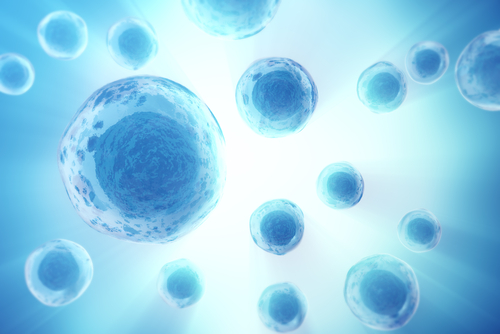Mesenchymal Stem Cells from ALS Patients Can Modulate Immune Cells’ Activity, Study Finds

Mesenchymal stem cells (MSCs) taken from the bone marrow of patients with amyotrophic lateral sclerosis (ALS) show an ability to control inflammation much like that seen in healthy people, but they respond differently and can be influenced by nearby pro-inflammatory molecules called cytokines, a study reports.
The study, “Immunomodulatory Properties of Bone Marrow Mesenchymal Stem Cells from Patients with Amyotrophic Lateral Sclerosis and Healthy Donors,” was published in the Journal of Neuroimmune Pharmacology.
MSCs are adult stem cells present in multiple tissues; they are multipotent, meaning they can be engineered to separate into several different cell types. Their ability to modulate the activity of immune cells by secreting signaling molecules makes them a prime candidate for efforts to reduce inflammation in diseases such as ALS.
Researchers in the Czech Republic explored how effectively MSCs from ALS patients were able to modulate immune responses, and compared responses of MSCs from healthy volunteers. Their intent was to better understand the therapeutic potential of MSCs.
They isolated MSCs from the bone marrow of 14 ALS patients (mean age, 47.7) and 14 age- and gender-matched donors undergoing orthopedic surgery.
Join our ALS forums: an online community especially for patients with Amyotrophic Lateral Sclerosis.
The team found that MSCs from both ALS patients and donors had similar levels of proteins related to immune response, regardless of whether they were exposed to pro-inflammatory signaling proteins. One exception was the PD-L1 marker, which was present in MSCs from both groups and responded to these signaling proteins.
PD-L1 is an important checkpoint protein that, when it binds to its receptor on immune cells, blocks these proteins to prevent an autoimmune reaction.
Other experiments showed that MSCs from ALS patients were able to lower immune cell production of TNF-alpha, a pro-inflammatory molecule implicated in several autoimmune diseases, including ALS. But when MSCs were cultured in the presence of several pro-inflammatory proteins they lost this ability, and again rose to levels seen in healthy donors.
In contrast, patient MSCs could enhance the synthesis of IL-10 by immune cells, an important anti-inflammatory signaling molecule. This effect on IL-10 production was similar to that seen in MSCs from healthy volunteers, with no significant differences between the groups.
Interestingly, MSCs from both groups were able to significantly increase the amounts of anti-inflammatory immune cells, as well as to markedly reduce the levels of pro-inflammatory immune cells.
Since these various immune cell subtypes are implicated in ALS development, either as a neuroprotective or neurotoxic agent, “the effects of MSCs on the balance between these [immune cell] populations represent an important way to slow down the progression of this disease,” the researchers wrote.
MSCs from both patients and healthy donors were able to effectively decrease the amount of CD8-positive T-cells, a specific subtype of immune cells known to contribute to ALS progression in late disease stages. But when exposed to pro-inflammatory cytokines, donor MSCs significantly lowered the percentage of CD8+ T cells present. “This suggests that pro-inflammatory cytokines could negatively influence at least some immunomodulatory properties of a patient’s MSCs,” the researchers said.
Collectively, these results show that MSCs from ALS patients have potential to regulate immune response in ways that are therapeutic and similar to those of healthy people. But further “studies investigating more precise impacts of the pro-inflammatory microenvironment on the effectiveness” of MSCs taken from ALS patients for use as a therapy are needed, they said.






